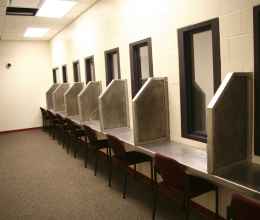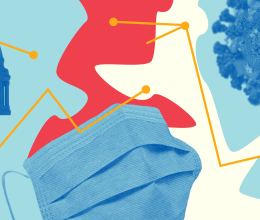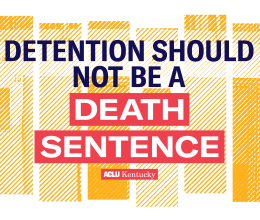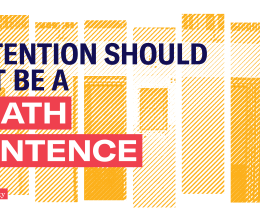
This piece was writting in collabortiona with the Fairness Campaign.
Prisons and jails are threatening and traumatic to anyone. They pose an even greater risk to the health and safety of LGBTQ+ people. This community is overrepresented in the criminal justice system due to generations of bias, profiling, and discrimination. It is even worse for LGBTQ+ folks who are people of color, lower-income, transgender, and gender non-conforming. Transgender women of color are the worst affected, with an incarceration rate 10 times that of the general population.
As the novel coronavirus spreads, health disparities in our LGBTQ+ community are more visible. COVID-19 is a respiratory illness that is particularly harmful to smokers and people with weakened respiratory systems. LGBTQ+ people use tobacco products 50 percent more than the general population and have higher rates of HIV and cancer. This leaves our broader LGBTQ+ community more vulnerable to infection and complications. Despite these increased health risks, many LGBTQ+ people are reluctant to seek medical care because of discrimination, unwelcoming attitudes, and a lack of understanding from many providers.
The coronavirus has ripped through many jails and prisons, and Kentucky is rapidly heading down that same path. At least two incarcerated Kentuckians have died from COVID-19 already. Officials must release as many people as possible to safe environments, especially those most at risk. LGBTQ+ do not just face increased health risks. Federal data shows transgender people are 10 times more likely to be sexually assaulted in prison, and people who identify as lesbian, gay, or bisexual are three times more likely to report sexual abuse. Other forms of abuse include degradation, humiliation, and solitary confinement. Also, 55 percent more LGBTQ+ people face long periods of solitary confinement than their heterosexual peers. This abuse leads to a post-traumatic stress disorder, depression, substance use disorder, suicide, and other negative physical and mental health outcomes.
Furthermore, transgender and gender non-conforming people are often placed in facilities that do not correspond to their gender identity, despite Prison Rape Elimination Act (PREA) regulations. They are often denied gender-appropriate clothing and personal hygiene products and are often punished and shamed for attempting to express their true selves. Officers also often abuse, harass, and humiliate transgender people with forced strip searches.
Moreover, it is especially difficult for LGBTQ+ people to access adequate healthcare. Incarcerated transgender people are often denied hormone therapy and other gender-affirming care. There aren’t even adequate policies for helping transgender people experiencing gender dysphoria, one of the most common and serious medical conditions. When available, this care is often denied despite being protected under the Eighth Amendment. These critical medical decisions are made by prison administrators, not licensed medical professionals.
Additionally, Incarcerated LGBTQ+ people are often denied work opportunities and access to other programs for illegitimate reasons rooted in discrimination. These programs and visits with friends and family are often the most meaningful experiences for incarcerated folks. This broken system ignores evidence-based practices and completely fails incarcerated LGBTQ+ people.
The Eighth Amendment protects all people from cruel and unusual punishment, but civil rights and liberties are often ignored when abusers target the most marginalized. There are over 20,000 incarcerated Kentuckians. It is impossible for them to practice social distancing and other health safety measures. The coronavirus cannot be stopped when people are forced to sleep three feet apart and share bathrooms, dining facilities, and common areas that are not sanitized frequently enough. This also puts corrections employees and their communities in grave danger. We must reduce incarceration rates and offer support that will actually help people – support that will help them get a job and exit poverty; that will help them earn a degree; that will help them overcome substance-use disorder. We must reform our system to make our society whole. Common sense justice reforms make us all safer, no matter how far or how close we may be to the criminal legal system.




